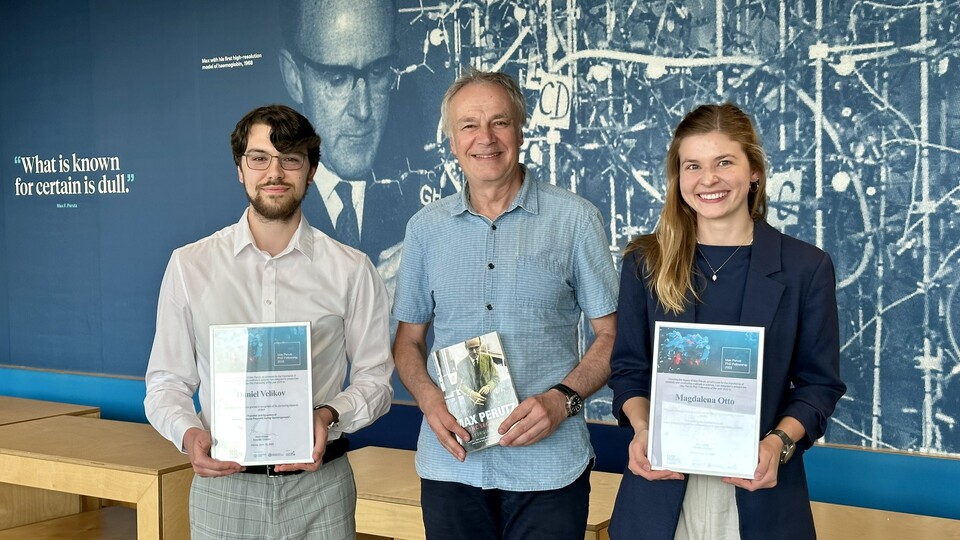
Precise molecular signaling allows cells to respond to challenges appropriately – deciding when, where, and how to act will determine a cell’s fate. Magdalena Otto is investigating how cells use phosphorylation to drive their response to proteotoxic stress. Her project centers on the kinase PERK, which, upon sensing unfolded proteins in the endoplasmic reticulum, prevents the initiation of new rounds of protein synthesis. While PERK’s downstream effects are well characterized, how its activation is triggered and relayed with high fidelity remains poorly understood. “I’m fascinated by how cells orchestrate complex responses so precisely – understanding PERK’s activation could offer new insights into stress-related diseases”, Magdalena explains.
Originally from Upper Austria, Magdalena studied molecular biology and microbiology at the University of Graz. She started her PhD in the Leonard lab at the Max Perutz Labs in November 2023.
Successful execution of meiosis is essential to ensure that the genetic material is faithfully recombined and segregated. Daniel Velikov is exploring a surprising and understudied aspect of this process: how metabolic enzymes form filaments during yeast meiosis. These structures, discovered in the Matos lab with contributions from Daniel during his Master’s studies, appear to play roles beyond metabolism, possibly influencing cell fate during the transition into dormancy. For his PhD, Daniel now investigates how these enzyme filaments assemble and what functions they have, using a combination of genetics, microscopy, and structural biology. “It’s exciting to uncover such unexpected behavior in well-characterized enzymes because it makes you realize how much more there is to learn about even the most ‘basic’ cellular processes”, Daniel says.
Daniel is from Bulgaria and moved to Vienna after high school to study biology at the University of Vienna, where he later completed his Master’s in Molecular Cell Biology. He joined the Matos lab at the Max Perutz Labs in March 2022.